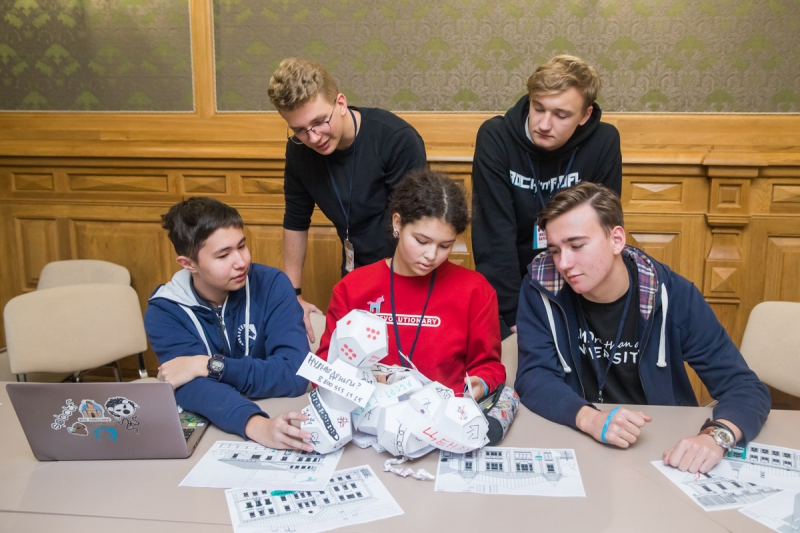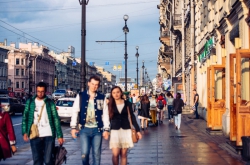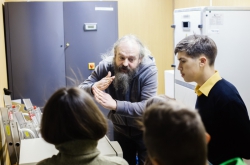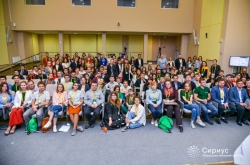Irina Shmeleva, head of ITMO’s Sustainable Urban Development Laboratory and associate professor at the Institute of Design & Urban Studies
Please tell us more about the Big Challenges competition.
Big Challenges is the project by the Sochi-based educational center Sirius, which was created by the educational foundation “Talent and Success” on the basis of the objects and infrastructure built for the 2014 Olympics. To participate, a student has to start by choosing one of the 12 tracks available, for example, Genetics, Cognitive Research, Nanotechnologies or Smart City. Then, as part of the qualification round, they have to create a project reflecting topical problems in this field and their possible solutions. In spring, the expert jury selects the best research works from all over the country, holds interviews with the candidates and then invites the winners of this round to Sochi, where they attend lectures, meet the representatives of companies and universities, and work on other projects in teams of seven or eight people each under the guidance of the company or university representative who initiated this idea.
Did ITMO specialists participate in the 2019 Big Challenges in Sochi?
Yes, the Institute of Design & Urban Studies was invited to coordinate the “Smart City” track, which included five projects. Working together with me were the Institute’s graduate, PhD student Artyom Shiyan, Master’s graduate Artyom Konyukhov and Master’s student Polina Krijzo, who came to Sochi for three weeks to serve as heads of the school students’ projects. Apart from that, because ITMO is a participant of this project, we also developed our own project suggestions. The Institute of Design & Urban Studies proposed two projects: “Comprehensive analysis of urban areas based on the method of ontological design of information databases” and “Coordinated software interface of a smart city”.
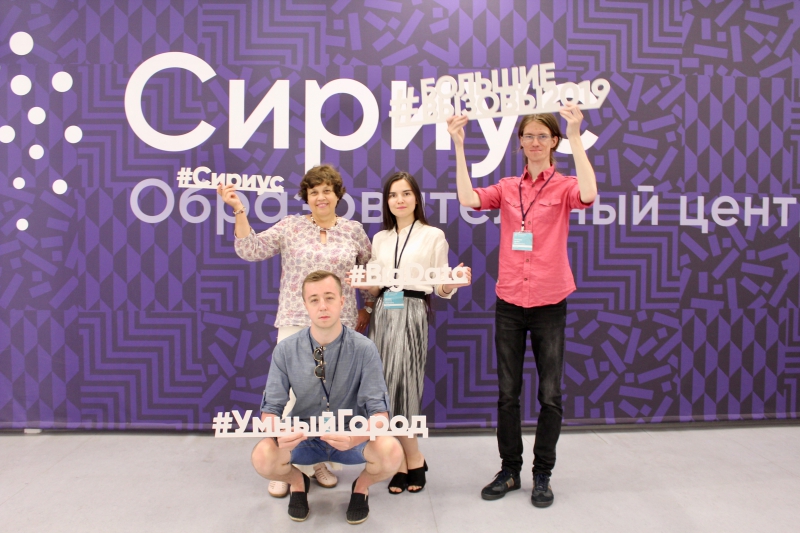
All in all, participating in our track were 37 school students from all over Russia, who were divided into five teams. Two of the projects came from ITMO University, so these were coordinated by our specialists. The other three were put forward by the Department of Information Technologies of Moscow, as well as the companies Sibur and Rosatom. But we not only helped the students with their research work but also hosted a number of lectures for the duration of the work to provide the students with the relevant context of the urban problems they were dealing with. In my opinion, this competition was a great learning opportunity for our young staff, too, as it allowed them to gain valuable teaching experience and teamwork organization skills.
When did you get the offer to host workshops and lectures for St. Petersburg students?
Our work as part of Big Challenges in Sochi came to a close in July, and at the end of August, the Academy of Talents in St. Petersburg offered us to participate in the preparatory stage of next year’s competition.
Does this mean that you worked with potential participants of next summer’s Sirius camp?
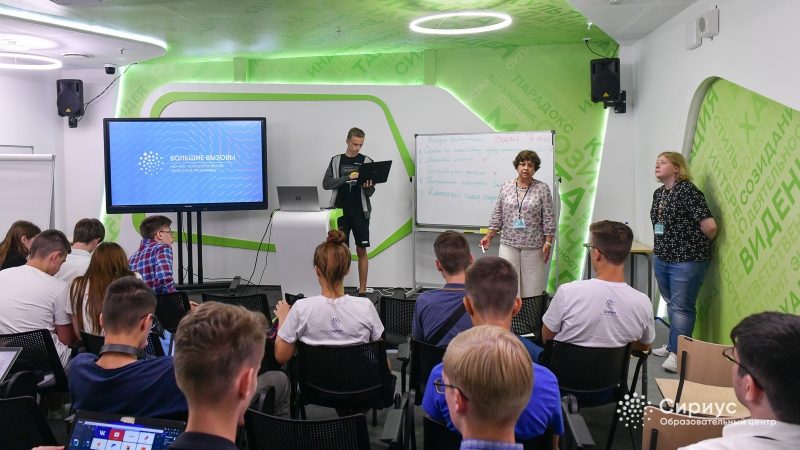
That is correct. Our work was built in such a way that school students interested in the problems of modern urban development could learn more about this field and find an idea for their future research project.
After nine days of intensive training, will you continue to support the participants’ projects?
Yes, we will continue to serve as experts whom the students can consult with in their work. The organizers of Big Challenges have a grandiose plan: they want that the students participate in real-world projects, doing their bit of the common work. That’s why major companies and universities are so interested in this contest as a platform for meeting promising school students and prospective university students. Normally, the training stage in the regions sees our functions transferred to teachers, but not all of them are immersed in the Smart City problematics and in project activity, which is why the Academy of Talents asked us to prolong our cooperation with the school students.
Ivan Gladiboroda, head of the Academy of Talents’ Talent Interaction Department
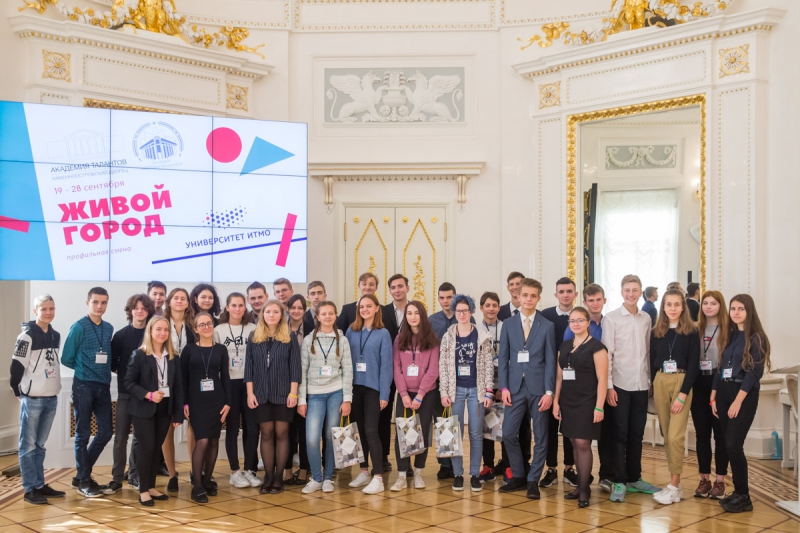
The Live City course lasted for nine days, bringing together over 30 school students interested in participating in Big Challenges. The students worked in six teams of five-six members each, and can continue to develop their projects on these teams’ basis. They attended such activities as design thinking workshops, where they developed small architectural forms, theoretical lectures, and soft skills workshops exploring such topics as goal setting, communication, self-presentation and others. Going forward, in the course of several months up until their application for the Big Challenges competition, the students will be interacting with experts who will provide online consultations to ensure their best level of preparedness for the national scientific and technological contest in the “Smart City” track.
The Big Challenges program represents only an intensive course on theoretical and practical activity for school students from St. Petersburg and Moscow but also an opportunity for the students from Russian regions. Presenting their works in Sochi in 2019 were students from 80 Russian regions. Apart from valuable experience, skills and knowledge the winners of each nomination will get an additional Unified State Exam points which will hopefully help them enroll in the university and program of their choice.
This was just the first project session: until December, the school students with different scientific interests will be able to attend other programs such as Big Data, personalized medicine and nanotechnologies.
Master’s student Polina Krijzo, co-head of the project
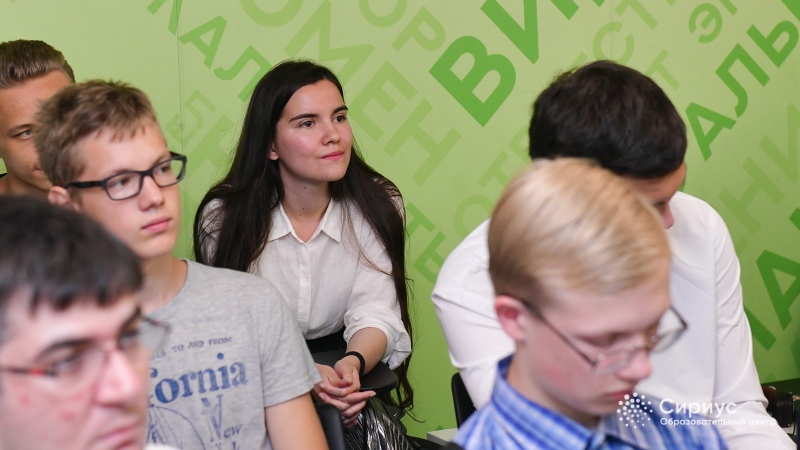
For me, my experience of working at Sirius wasn’t just three weeks of coordinating “some school kids” working on “some abstract project”. Everything was done on a very serious level: there were real-world tasks and really interested students ready to transfer their vast knowledge into a real result. In the course of the project activity, the students and we became a team that always did something it likes, to the benefit of itself and the society as a whole. I tried to be useful to them, and they, perhaps even without realizing it, taught me. The students trained my team management skills, diplomacy, the ability to motivate, inspire, listen, understand, joke and always stay on the bright side. Sirius also introduced me to many like-minded colleagues who were a pleasure to talk with not only on professional but also other topics: dolphins in the sea, the sun, the beautiful mountain scenery, or a Zenit-Sochi football match. I’m very grateful to ITMO’s Institute of Design and Urban Studies for this trip and see this past July as one of the most productive months of this summer. I returned with tons of new experience, ideas, and energy for the new projects to come!
